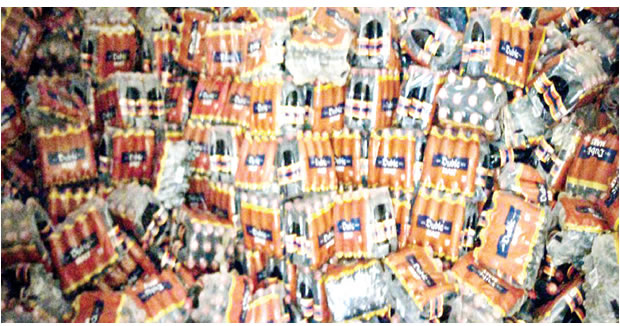Nigeria’s food and beverage industry stands as a significant pillar of the nation’s economy, boasting a substantial market capitalization of N10.84 trillion, as revealed by recent trading data from the Nigerian Exchange Limited (NGX). This impressive figure underscores the industry’s robust performance and its pivotal role in driving economic activity within the country. A deeper analysis reveals the sector’s nuanced composition, showcasing the contributions of various sub-sectors and individual companies to the overall market value. This detailed examination highlights the industry’s dynamics, revealing both the strengths and challenges faced by the diverse players within the food and beverage landscape.
The beverage sector, encompassing breweries and distilleries, commands a respectable market capitalization of N2.06 trillion. Dominated by industry behemoths such as Nigerian Breweries Plc. and International Breweries Plc., these companies collectively contribute a significant portion of the sector’s value, with Nigerian Breweries leading the charge at N997.65 billion and International Breweries trailing closely behind at N908.77 billion. Despite this robust overall performance, the sector isn’t without its challenges, as evidenced by the declining share price of Guinness Nigeria Plc., which experienced a significant drop of 7.47%, closing at N65.00. The sector’s trading activity, marked by 3.87 million shares exchanged across 197 trades, further underscores the dynamic nature of this segment of the market. The varying performance of individual companies within the beverage sector reflects the complex competitive landscape and the influence of market forces on individual brands.
The food products sector emerges as the dominant force within the broader food and beverage industry, boasting an impressive market capitalization of N8.04 trillion. This dominance is largely attributed to the exceptional performance of BUA Foods Plc., which commands a staggering N7.47 trillion of the sector’s total value. Other notable contributors to this sector include Dangote Sugar Refinery Plc., with a market capitalization of N400.85 billion, and Honeywell Flour Mills Plc., registering N72.24 billion. However, the sector also reveals signs of internal struggles, as exemplified by the lack of trading activity reported by companies like Multi-Trex Integrated Foods Plc., indicating potential operational challenges that warrant further investigation. The sector’s overall strength underscores the vital role of food production in the Nigerian economy, while the individual company performances highlight the competitive dynamics within this crucial segment.
Adding another layer of complexity to the food and beverage industry is the diversified food products category, a sub-sector largely dominated by multinational corporations. This segment commands a market capitalization of N745.56 billion, with Nestlé Nigeria Plc. leading the pack at an impressive N693.57 billion, followed by Cadbury Nigeria Plc. at N51.99 billion. The presence of these multinational giants underscores the attractiveness of the Nigerian market for global food companies and the potential for sustained growth within this sector. Their substantial market capitalizations reflect the strong consumer demand for their products and the companies’ ability to effectively navigate the Nigerian market landscape.
The overall analysis of Nigeria’s food and beverage industry paints a picture of a vibrant and dynamic sector, marked by both significant growth and underlying challenges. The substantial market capitalization of the industry as a whole points to its importance as a key driver of economic activity within the country. The diverse performance of individual companies and sub-sectors highlights the complex interplay of market forces, consumer preferences, and company-specific factors that shape the industry’s landscape. This detailed examination provides valuable insights into the opportunities and challenges facing businesses operating within this crucial segment of the Nigerian economy.
Further research into specific market trends, consumer behavior, and regulatory factors could provide a more comprehensive understanding of the dynamics at play within the food and beverage sector. This deeper analysis could shed light on the potential for future growth and innovation, and identify areas where strategic interventions could further enhance the sector’s performance and contribution to the Nigerian economy. The continued monitoring of key performance indicators, such as market capitalization, trading volumes, and company profitability, will be essential for tracking the industry’s progress and informing future investment decisions. The food and beverage industry’s importance to Nigeria’s economic well-being necessitates ongoing analysis and strategic planning to ensure its continued growth and stability.


